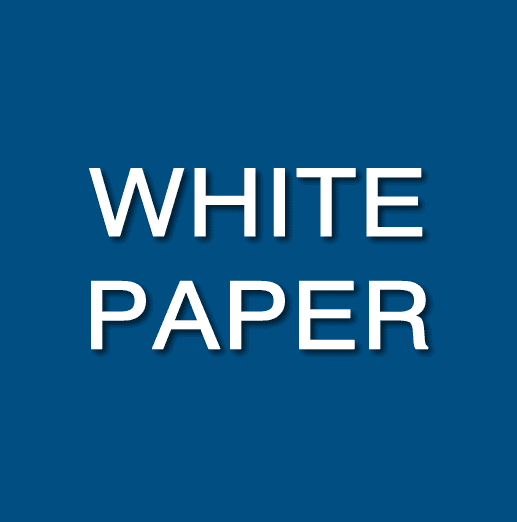White Paper
Creating Highly Precise Features with No Heat-Affected Zones.
Thermal lasers have achieved extraordinary results in microprecision manufacturing of medical implants and devices the past 20 years. Devices we take for granted today, such as vascular stents, could not be produced without the technology, however there are still significant limitations on what medical implant and device manufacturers can produce using thermal lasers.
One major issue inherent in thermal laser machining is heat, because heat can:
- Introduce more variability in the manufacturing output.
- Require additional material to produce a finished product.
- Damage the material and increase the potential for failure related to metal fatigue in high stress regions.
- Require post-production finishing that can add unnecessary time and cost.
The solution to this issue is to remove the heat from the manufacturing process. Athermal laser machining, the next generation technology advancement in medical and implant manufacturing, provides this solution.
Athermal lasers address the limitations of thermal laser technology in all metals, including Nitinol. Additionally, athermal laser technology enables the machining of bioresorbable materials, which are interchangeably referred to as bioabsorbable, biodegradable and resorbable. Since these materials are absorbed into the bloodstream over time, this family of bioresorbable materials represent the next major advancement for orthopedic applications where the implant is needed only temporarily, such as with vascular scaffolds.
Evolving medical implant design has moved beyond historical manufacturing methods, demanding new, highly advanced manufacturing technologies. Athermal laser machining is a critical manufacturing advancement that enables the machining of these evolving implants and devices that would be other wise impossible to produce.
NORMAN NOBLE LEADS THE WAY IN ATHERMAL LASER MICRO-MACHINING
To support its original equipment manufacturer (OEM) customers, medical device contract manufacturer Norman Noble, Inc. developed Noble S.T.E.A.L.T.H. (System To Enable Ablation Laser Technology Haz-Free), an exclusive, athermal laser machining process that represents an advancement of several magnitudes in medical device production. Noble S.T.E.A.L.T.H. makes it possible to produce next-generation bioabsorbable scaffolds and Nitinol-based micro implant designs that could not previously be manufactured using current technologies.
Noble S.T.E.A.L.T.H. is an ultra-short pulse (USP) proprietary laser system integrated by Norman Noble to create highly precise features in any material, such as bioabsorbable polymers, shape memory metals (Nitinol) and other exotic alloys without producing any heat affected zone (HAZ). It can reduce, and in some cases, eliminate costly deburring and post-processing steps, which increases product quality and yield to previously unattainable levels and leaves the machined geometry intact. Accordingly, the Noble S.T.E.A.L.T.H. produces the narrowest laser-cut kerfs in the industry at kerf widths of .00045 inches in Nitinol and .00025 inches in bioresorbable materials.
In addition to enabling production of new designs, Noble S.T.E.A.L.T.H. provides increased flexibility within existing designs, which can then be manufactured three times faster than they can be with current laser machining technologies.
Benefits of partnering with Norman Noble on Athermal Laser Machining include:
- Heat-free machining of bioabsorbable materials and Nitinol
- Machining that does not produce heat affected zones (HAZ)
- Reduction or elimination of costly deburring and post-processing steps
- The industry’s fastest laser ablation processing speed
- Increased product quality and yield
Another critical benefit of partnering with Norman Noble for athermal laser machining applications is the company’s dedicated process development centers. These process development centers (PDCs) mirror Norman Noble’s production manufacturing environment, but feature dedicated equipment and teams to assist its customers with product design and development. Within its PDCs, Norman Noble can:
- Offer immediate Design For Manufacturability feedback upon receipt of an RFQ.
- Prototype the designs with samples available in days.
- Fully develop the process so it is validation-ready when transferred to production equipment.
CASE STUDY: NOBLE S.T.E.A.L.T.H. DOES WHAT THERMAL LASERS CANNOT
A medical device OEM presented Norman Noble with an opportunity to manufacture a tubular-based neurovascular implant device. The OEM had manufacturing capabilities in-house, but was not able to produce acceptable product due to capability limitations.
Before approaching Norman Noble, the OEM engaged several local laser contract manufacturers and found very little success. Other suppliers using thermal lasers had competitive feed rate issues, ID dross cleaning issues, back wall strikes and oversized kerf widths that exceeded the .0005 inch maximum requirement, measuring .0011 inches and greater, proving to be prohibitive to the design intent. The project was slated for cancellation until the design engineer presented the case for athermal laser machining.
Using its S.T.E.A.L.T.H. athermal laser technology, Norman Noble achieved a kerf width of .00045 inches with faster feed rates than traditional laser systems, no back wall strikes and no ID dross. The .00045 inch kerf width also allowed the design engineer to make some features smaller than previous specifications because there was no secondary finishing required to remove head damage, which would have enlarged the cut path geometry.
Noble S.T.E.A.L.T.H. enabled the medical device OEM to launch the product and do it in record time. The neurovascular implant device is now considered the standard of care in its product segment.
NOBLE S.T.E.A.L.T.H. APPLICATIONS:
- Heart Valves (Nitinol)
- Stents (Nitinol)
- Bioresorbable Scaffolds
- Neurovascular Implants and Devices (Nitinol and Bioresorbable Materials)
- Vena Cava filters (Nitinol)

